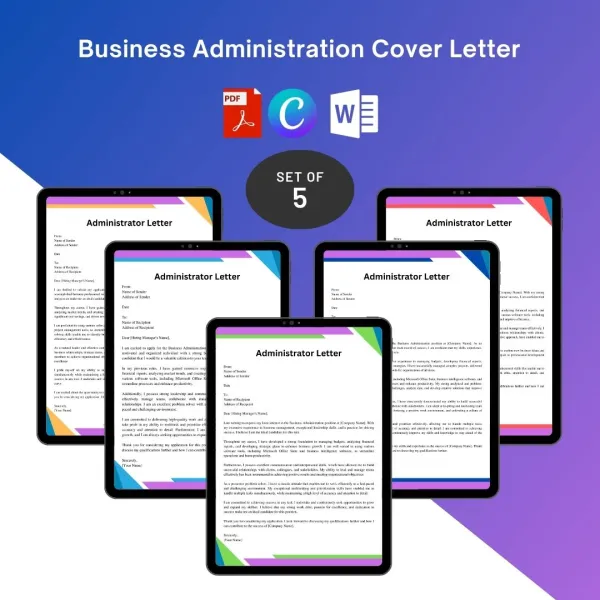Crafting the Perfect Candidate Attorney Cover Letter
4 min read
Introduction: The Importance of a Strong Cover Letter
Firstly, A well-crafted cover letter is often the first impression a potential employer has of you as a candidate attorney. It serves as an introduction to your resume and gives hiring managers a glimpse into your personality, skills, and qualifications. In today’s competitive job market, it is essential to have a strong cover letter that sets you apart from other applicants and grabs the attention of employers.
In this section, we will discuss the importance of a strong cover letter and why it should not be overlooked in the job application process for aspiring attorneys.
-
A Cover Letter Provides Context:
A cover letter allows you to provide context to your resume by highlighting key experiences, skills, and achievements that align with the job requirements. It acts as a support document for your resume and provides additional information about your background and qualifications.
Furthermore, if there are any gaps in your resume or career changes that may need further explanation, a cover letter is the perfect place to address them. This helps employers understand your journey and how you have developed relevant skills for their specific role.
-
Showcases Your Writing Skills:
As an attorney, excellent communication skills are crucial in this field where writing plays a significant role. A well-written cover letter demonstrates your ability to articulate thoughts clearly and concisely while showcasing your writing style.
Use this opportunity to showcase your legal writing abilities by using proper grammar, vocabulary, formatting, tone, and structure. Remember to write in an active voice rather than passive voice to make it more engaging for readers
Tips for Formatting and Structure of a Cover Letter
Formatting and structure are key components of a well-written cover letter. A poorly formatted or disorganized cover letter can give a negative first impression to potential employers, whereas a well-structured and visually appealing cover letter can make you stand out as a strong candidate. Here are some tips for formatting and structuring your cover letter to grab the attention of hiring managers.
-
Start with the basics:
The first step in formatting your cover letter is to use an appropriate font style and size. Stick to professional fonts such as Arial, Times New Roman, or Calibri in size 11 or 12. Avoid using excessive bolding, italics, or underlining as it can make your cover letter look cluttered and difficult to read.
-
Use proper spacing:
Make sure there is enough space between paragraphs and sections of your cover letter. A crowded-looking Candidate Attorney Cover Letter an be overwhelming for the reader. Use single-spacing within paragraphs and double-spacing between them.
-
Keep it concise:
Your cover letter should not exceed one page in length unless explicitly stated by the employer. Aim for three to four short paragraphs that highlight your relevant skills and experiences instead of lengthy paragraphs that may lose the reader’s interest.
-
Choose an appropriate tone:
While it is important to showcase your personality in a cover letter, maintain a professional tone throughout. Avoid using slang or overly casual language as it may come across as unprofessional.
Common Mistakes to Avoid in a Candidate Attorney Cover Letter
When applying for a candidate attorney position, the cover letter is often the first impression that potential employers will have of you. A well-written and compelling cover letter can make all the difference in securing an interview and ultimately landing your dream job. However, there are also common mistakes that many candidates make in their cover letters that can hinder their chances of success. In this section, we will discuss some of these mistakes and provide tips on how to avoid them.
-
Using a generic template:
One of the biggest mistakes that candidates make is using a generic cover letter template without tailoring it to the specific job they are applying for. This approach can come across as lazy and impersonal to employers. Instead, take the time to research the company and position you are applying for, and customize your cover letter accordingly.
-
Focusing too much on yourself:
While it is important to highlight your skills and experiences in your cover letter, it should not be all about you. Your focus should be on how you can add value to the company and contribute to their success. Use specific examples from your past experiences that demonstrate how you would be an asset to their team.
-
Not proofreading carefully:
It may seem obvious, but spelling and grammar errors in a cover letter can leave a negative impression on potential employers. Make sure to proofread your cover letter multiple times before submitting it, or even better, have someone else read it over for any mistakes or typos.
In Conclusion: Final Thoughts and Next Steps
Crafting a strong cover letter for your candidate attorney application is crucial in standing out from the competition. It is your first opportunity to make a lasting impression on potential employers and showcase your unique skills and qualifications. By following the tips and tricks outlined in this guide, you can create a standout cover letter that will grab the attention of hiring managers.
As you move forward with your job search, there are a few final thoughts to keep in mind:
- Tailor Your Cover Letter to Each Job Application
Remember that each job opening will have different requirements and expectations. Therefore, it is important to tailor your cover letter specifically to each position you apply for. This shows that you have taken the time to research the company and understand their needs.
- Keep it Concise and Professional
Your cover letter should be no more than one page long, so be sure to keep it concise and focused. Avoid using overly casual language or including irrelevant details. Keep a professional tone throughout the letter.



